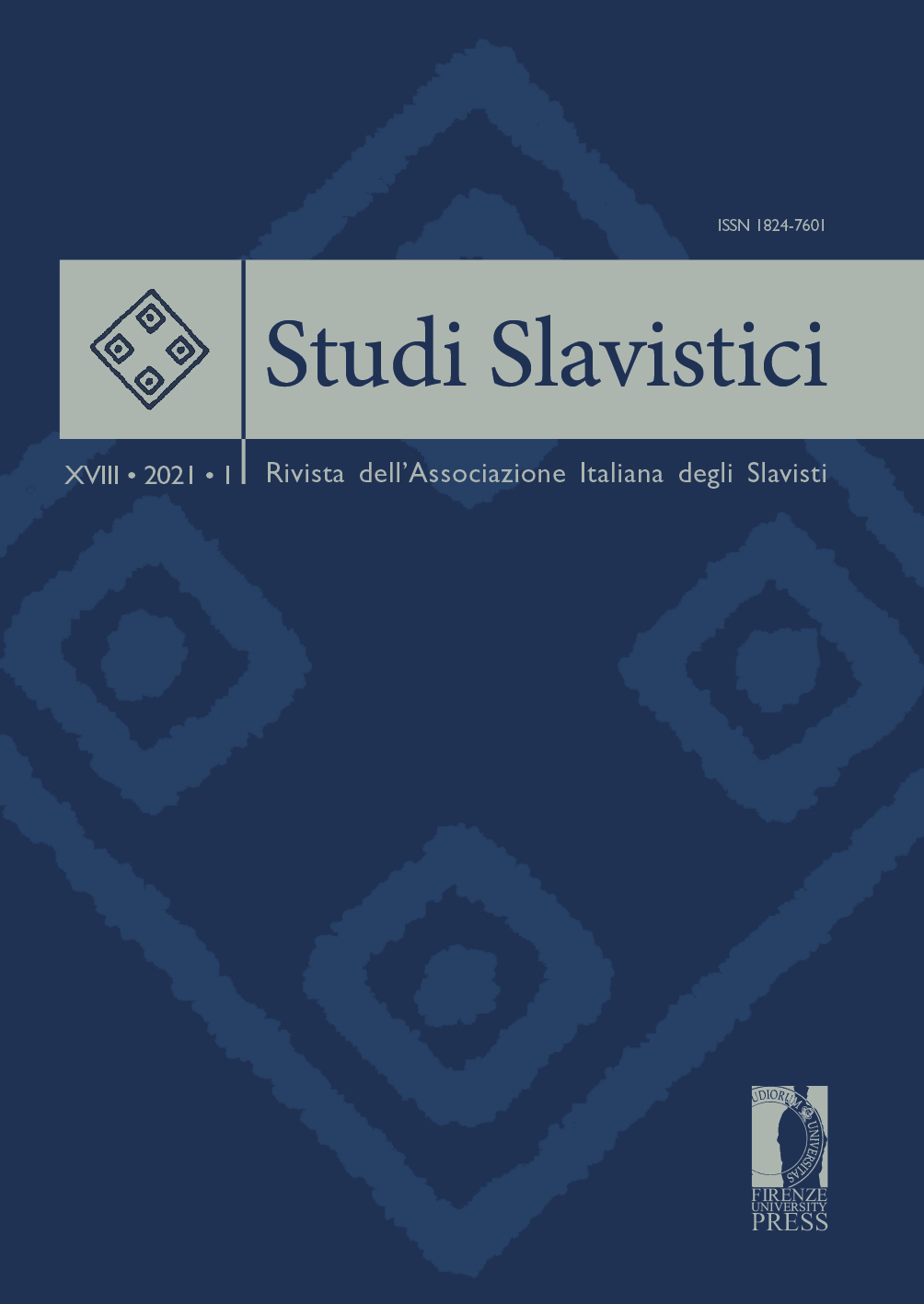Dante Canonized and Discarded. Some Remarks on the Reception of the Divina Commedia in the Stalin Era
Published 2021-07-20
Keywords
- Dante Alighieri,
- Divina Commedia,
- Michail Lozinskij,
- Dmitrij Min,
- Ivan Grevs
- Russian Translations of the Divina Commedia,
- Vsemirnaja Literatura ...More
Abstract
During the late nineteenth and early twentieth centuries, in the academic and literary circles of tsarist Russia Dante’s Divina Commedia was considered as a religious poem. The theological background underlying the work incurred ecclesiastical censorship, which made it challenging to publish its translations during Nicolay i’s and Alexander ii’s reigns. The mystic motifs and religious imagery found therein became later particularly popular with Silver Age authors. The reception of the Divina Commedia as a Christian text remained unchallenged in the early post-revolutionary Russian intellectual milieu; notably, the publishing house “Vsemirnaja Literatura” (“World Literature”) was not able to justify the preparation of a new translation on ideological grounds. Until the early 1930s, in Soviet literature Dante Alighieri was a controversial figure within the subfield of literary translation; yet in 1946, Michail Lozinskij’s translation of the Divina Commedia was awarded the Stalin Prize 1st class, which for the very first time was granted to a work of translation. The aim of this article is threefold: first it attempts to demonstrate the ways by which, beginning in the 1930s, Dante gradually came to occupy an important place in some printed media in the Soviet Union; second it investigates the circumstances under which a translation of the Divina Commedia was published, and lastly it emphasises that the religious content of Dante’s poem – once appealing to pre-revolutionary writers – was eventually disregarded. The present research, which relies on documents from public and private archives, also traces the history of the preparation of the commentaries that in the 1930s and 1950s accompanied the Russian translations of the Divina Commedia; I shall argue that the editors Dmitrij Min and Michail Lozinskij adopted an approach that was to a certain extent similar to ecclesiastical censorship in tsarist Russia.


